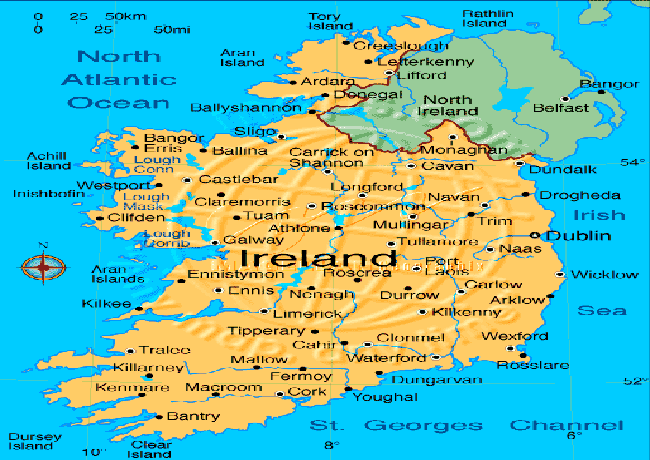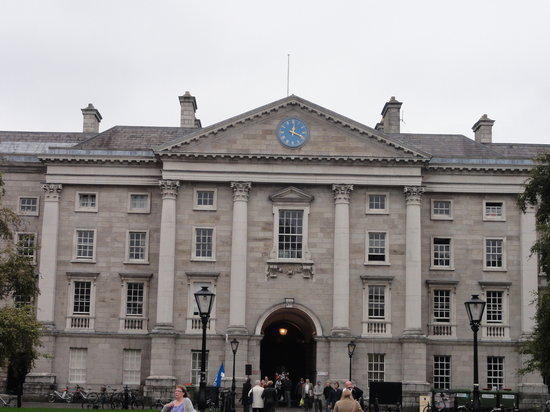
An Irish Asset Protection Trust is based on a long history of trusts in Ireland.
Irish Trusts Law is similar to English Trusts laws but contains certain advantages to foreigners. The United Kingdom’s Trustee Act of 1893 governs Irish Trusts. While the English Trustee Act 1925 made substantial changes to the manner how Trusts are governed in England, had no effect on Ireland which chose not to adopt this law.
In addition, Ireland’s Land and Conveyancing Law Reform Act 2009 allowed for a variety of trusts to be formed while abolishing the Rule Against Perpetuities which had placed a limit on the lifespan of trusts in the United Kingdom, British colonies and Commonwealth. Therefore, Irish Trusts have perpetual lifespans.
One of these trusts is the Discretionary Trust which makes the Trustees the legal owners of all trust assets. This creates distance between the original Settlor and the Beneficiaries providing important tax benefits and asset protection for them. Thus, Irish Trust laws provide a beneficial jurisdiction for international wealthy families.
Background
Ireland is a constitutionally democratic sovereign state in north-western Europe. It’s officially called the “Republic of Ireland”. Ireland follows the British common law system. Irish Trust laws originated and were developed by the principles of English Trust law.
Benefits
An Irish Asset Protection Trust has the following benefits:
• Foreign Owned: Foreigners can own 100% of the Trust.
• Asset Protection: Ownership of all assets are with the Trustees.
• Estate Planning: A perfect estate planning tool.
• Perpetual Life: Irish Trusts can last forever.
• No Taxation: Foreigners will pay no taxes of any kind as long as the assets are located outside of Ireland and none of the Trustees are Irish residents. Note, U.S. residents and others subject to worldwide taxation must declare all income to their taxation authorities.
• Privacy: Neither the names of the Settlor or the Beneficiaries are part of any public records.
• Experienced Trust Professionals: Ireland has formed trusts since 1893 and provide experienced trust professionals.
• English: The official language of Ireland is English.

Name
An Irish Trust can choose any name as long as it is not similar to exiting Irish legal entities. Normally, the word “Trust” will appear in the name.
Asset Protection Trusts
Irish Asset Protection Trusts offer further separation between the Settlor (Founder) and his/her assets. Some trusts take title to the Settlor’s assets. Other trusts merely hold the assets on behalf of the Beneficiaries. The Irish Trust places ownership in the hands of the Trustees. This makes it difficult for legal challenges to the trust structure based upon a trust merely acting as a buffer between the Settlor and the Beneficiaries.
Since ownership of the assets are with the Trustees, an Irish Trust provides protection against foreign lawsuits, government seizures, and third party challenges to the Trust.
Types of Trusts
Irish Trust laws recognizes three types of trusts:
1. Bare Trusts – Often referred to as a “simple trust” where the beneficiaries have the right to receive both the income and the principal to be remitted in their own names. For tax reasons, all income the trust receives is distributed to the beneficiaries during the same tax period.
2. Discretionary Trusts – This type of trust does not contain fixed entitlements for the beneficiaries. Rather, the Settlor establishes the criteria in the trust documents. Thus, it is up to the “discretion” of the trust’s Founder (Settlor); and
3. Interest in Possession Trusts – For income tax purposes, this type of trust allows for the beneficiaries to have an immediate right to the trust’s income as it comes. The Trustee automatically passes all of the income when received, minus trust expenses, to the beneficiaries.
Estate Planning
When established outside of Ireland, either of these trusts can include succession planning for broad estate planning preserving a family’s wealth and continuity of ownership of all assets for many years. There will be no need to write a will or have to deal with costly and time consuming foreign probate courts. This is why Irish Trusts are a desirable estate planning tool.
Advantages of Ireland
In regards to being a good jurisdiction for establishing trusts, Ireland has these advantages:
1. Long tradition of trusts since 1893;
2. Sophisticated professionals with experience in forming trusts. One third of the world’s investment funds are domiciled in Ireland. 50% of the world’s commercial aircraft leasing special purpose vehicles are domiciled in Ireland. As a result, Ireland offers highly qualified tax and accounting professionals, legal experts, and an elaborate capital infrastructure.
3. Established “onshore taxing principles” which actually separates Ireland from traditional “tax haven” countries with no taxation in a beneficial manner.
4. Avoidance of being blacklisted by the OECD and other tax haven watchdog international organizations. The OECD published its original blacklisting report in 2000 which identified jurisdictions considered to be tax havens because of no tax rates and lack of transparency. Ireland has never been “blacklisted”.

Three types of taxes may affect the Irish Trust: Income Tax, Capitals Acquisitions Tax (CAT), and the Capital Gains Tax (CGT).
Income Tax
The residency of the Trustees determines whether an Irish Trust can be subject to income taxes. Trustees (including corporate) receiving income pay an Irish income tax at the current rate of 20%. However, non-residents are not subject to Irish income taxes. Even if a Trustee is a resident, as long as the trust income is received by non-resident beneficiaries, no income is owed.
Discretionary Trusts can be treated as an Irish resident depending on the residency of the Trustees. An Irish Resident Discretionary Trust is subject to Irish Income Tax which could be as high as 20%. However, the tax can be avoided if the trustees distribute the income to the beneficiaries within 18 months from the year it arises. The solution is to appoint Trustees residing outside of Ireland. The same goes for the Capital Gains Tax. In addition, there is an Irish Discretionary Trust Tax arising after the Settlor dies and all of the beneficiaries are over 21 years of age with a one-time 3% tax of the value of all assets if distributed within five years of the death. However, this only applies to Irish residents and/or assets located within Ireland’s borders.
No taxes are levied if the Trustees and Beneficiaries are not residents of Ireland and no assets are in Ireland. However, U.S. taxpayers and every resident in a country taxing global income must declare all income to their governments.
CAT
The CAT is a tax on beneficiaries similar to inheritance and gift taxes in other countries. The current rate is 33% of their total value. However, this tax is only imposed on Irish residents or of the assets are physically inside Ireland. The Irish tax authorities look at these conditions to determine if the CAT does not apply:
1. The Settlor is not an Irish resident and was not one when the Trust was established.
2. The Beneficiaries are not Irish residents when any benefits were received.
3. The Trust assets are not situated in Ireland.
CGT
Non-resident Settlor and Beneficiaries of a Trust where all its assets are located outside of Ireland will be exempt from the CGT.
Time to Form
An Irish Trust can be formed in one day.
Summary
Foreigners establishing Trusts in Ireland will not be subject to any taxes as long as the Settlor, Beneficiaries, and Trustees are not Irish residents and all of the Trust assets are located outside of Ireland.
Wealthy foreigners have the option to choose from three types of trusts. Every Irish Trust has no limits on its lifespan.
Ireland has experience with establishing trusts since 1893 and has written laws protecting trusts along with following British common law principals. That is why one third of the world’s investment funds are domiciled in Ireland. Finally, English is its official language.
Conclusion
An Irish Asset Protection Trust has the following benefits: 100% foreign ownership, no taxes, asset protection, privacy, estate planning, perpetual life, fast formation, and English is the official language.


